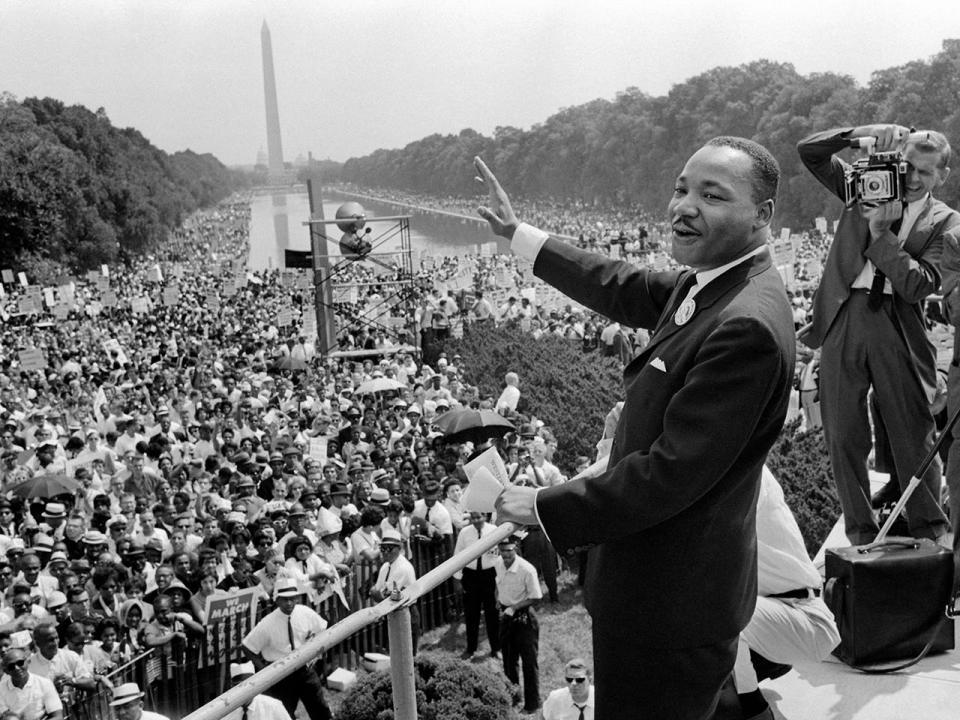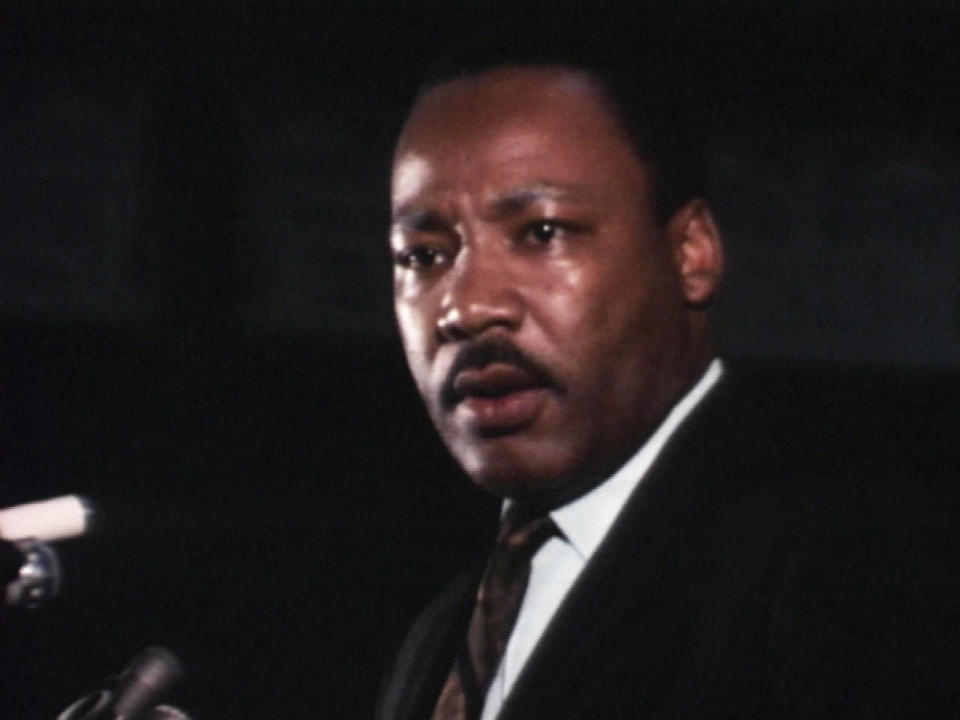The dream marches on: Looking back on MLK's historic 1963 speech
- Oops!Something went wrong.Please try again later.
- Oops!Something went wrong.Please try again later.
Tomorrow marks the anniversary of a speech truly for the ages. Our commentary is from columnist Charles Blow of The New York Times:
Sixty years ago, on August 28, 1963, the centennial year of the Emancipation Proclamation, an estimated 250,000 people descended on Washington, D.C., for the March on Washington for Jobs and Freedom.
That day, Martin Luther King, Jr. took the stage and delivered one of the greatest speeches of his life: his "I Have a Dream" speech:
"I have a dream that one day this nation will rise up and live out the true meaning of its creed: We hold these truths to be self-evident that all men are created equal."

It was a beautiful speech. It doesn't so much demand as it encourages.
It is a great American speech, perfect for America's limited appetite for addressing America's inequities, both racial and economic. It focuses more on the interpersonal and less on the systemic and structural.
King would later say that he needed to confess that dream that he had that day had at many points turned into a nightmare.
In 1967, years after the passage of the Civil Rights Act and the Voting Rights Act, King would say in a television interview that, after much soul-searching, he had come to see that "some of the old optimism was a little superficial, and now it must be tempered with a solid realism."
King explained in the interview, that the movement had evolved from a struggle for decency to a struggle for genuine equality.
In his "The Other America" speech delivered at Stanford University, King homed in on structural intransigence on the race issue, declaring that true integration "is not merely a romantic or aesthetic something where you merely add color to a still predominantly white power structure."

The night before he was assassinated, King underscored his evolving emphasis on structures, saying to a crowd in Memphis, "All we say to America is, 'Be true to what you said on paper.'"
As we remember the March on Washington and honor King, we must acknowledge that there is no way to do justice to the man or the movement without accepting their growth and evolution, even when they challenge and discomfort.
For more info:
Charles M. Blow, The New York Times
Story produced by Robbyn McFadden. Editor: Carol Ross.
See also:
Guardian of history: MLK's "I have a dream speech" lives on ("Sunday Morning")MLK's daughter on "I Have a Dream" speech, pressure of being icon's child ("CBS This Morning")Thousands commemorate 60th anniversary of the March on Washington
More from Charles M. Blow:
On Tyre Nichols' death, and America's shameOn "The Slap" as a cultural Rorschach testHow the killings of two Black sons ignited social justice movementsOn when the media gives a platform to hateMemories of the 1921 Tulsa MassacreOn the Derek Chauvin trial: "This time ... history would not be repeated"On the greatest threat to our democracy: White supremacyOn race and the power held by police
Full interview: Former New Jersey Gov. Chris Christie
Face The Nation: Khanna, Mace, Hill
Russia expert Fiona Hill says Prigozhin's death in a plane crash is "par for the course"

